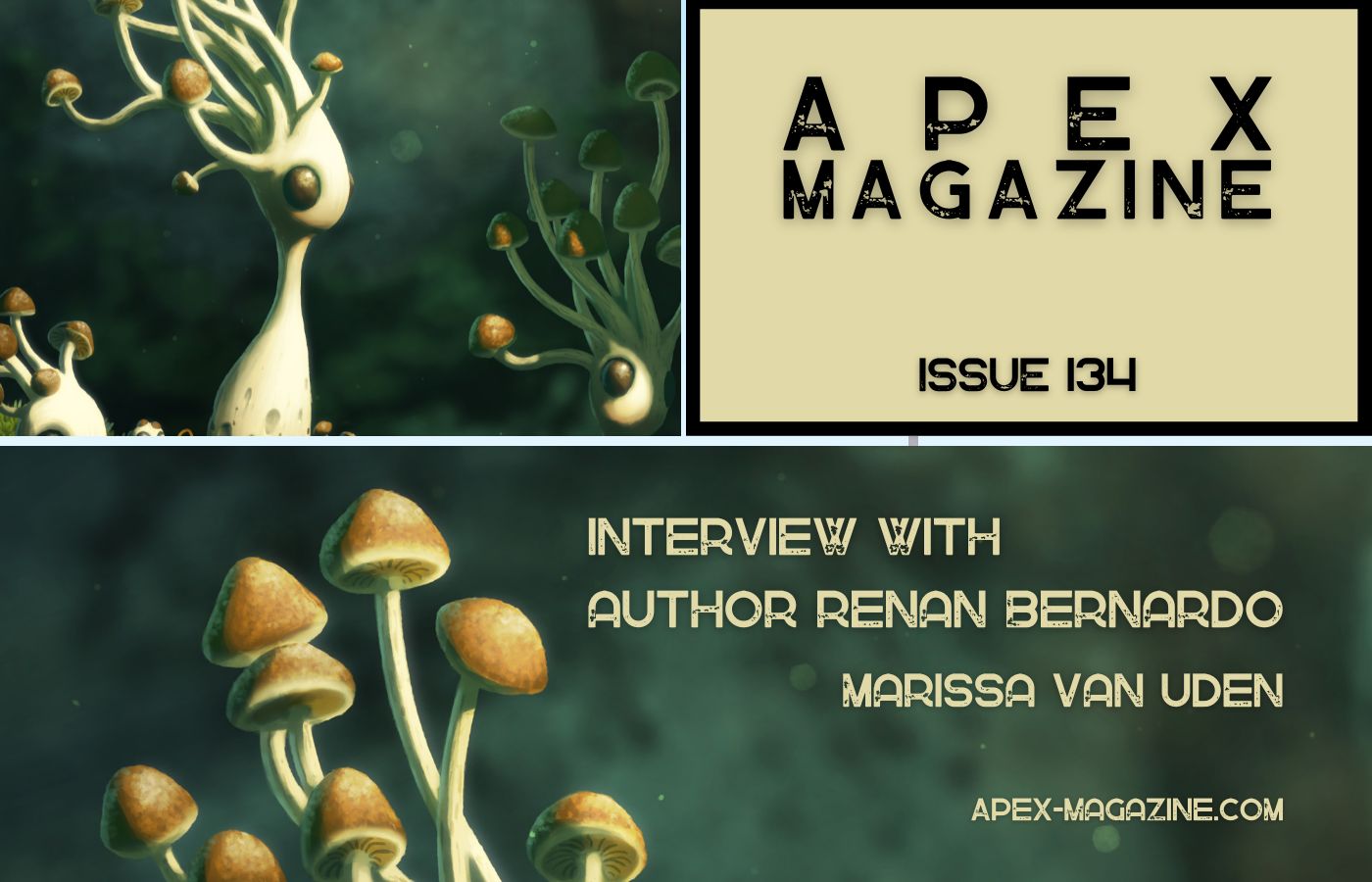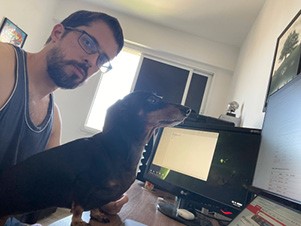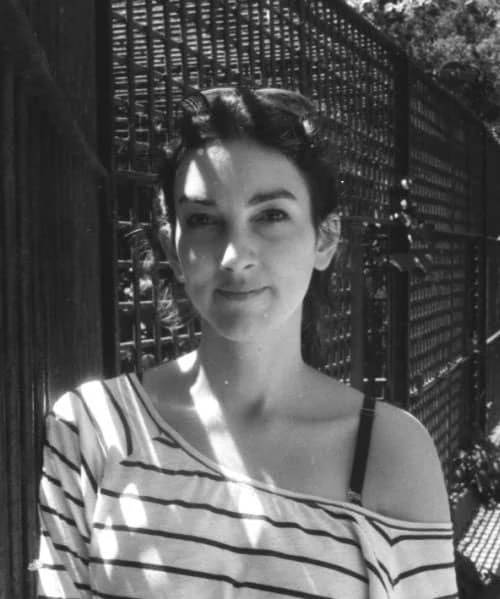
“The Walking Mirror of the Soul” by Renan Bernardo tells the story of a couple who live on Teresa Station alongside the Vonkrai, a non-human culture from another solar system. The Vonkrai skin reflects the thoughts of all those around them, which creates some intriguing and difficult situations for humans, who tend to present themselves one way while keeping their deepest fears and desires secret from one another, or even from themselves. This is a fantastic story about communication, trust, and honesty, and also about the relationship between humans and their own minds.
Renan Bernardo is a science fiction and fantasy writer from Rio de Janeiro, Brazil. His fiction appeared inApex Magazine,Podcastle,Escape Pod,Daily Science Fiction,Translunar Travelers Lounge,Solarpunk Magazine,On Spec Magazine,and others. He was one of the authors selected for the 2021Imagine 2200climate fiction contest with his storyWhen It’s Time to Harvest. In Brazil, he was a finalist for two important SFF awards and published multiple stories. His fiction has also appeared in multiple languages,including German, Italian, Japanese, and Portuguese.
Marissa Van Uden: Thank you so much for joining us, Renan! I’m so excited to dig a little deeper into this story with you. In the world of “The Walking Mirror of the Soul,” Vonkrai’s continually display the thoughts of those around them on their skin, meaning humans nearby can see a live-scrolling commentary of their own (and others) subconscious thoughts. But humans prefer to keep their true thoughts, fears, and intentions hidden, only revealing them to their most trusted people (if anyone) as an act of bonding. What inspired you to explore these curious aspects of human relationships in this story? How did the seed of this story come about?
Renan Bernardo: Thank you for inviting me for this interview, Marissa! It’s a pleasure.
My first spark for this idea was actually a first paragraph. First, I imagined humans with words moving on their bodies, then I kind of figured those were thoughts of other people around them. From there, I wrote a first paragraph that resembles the one in the last version, but those different humans ended up as an alien race: the Vonkrai. I first thought of an investigation story, which is still there, but it’s not the main focus of the narrative.
I’ve been wanting to write an “idea story” for a while, something with a cool concept, even if implausible in real life. I tried to suggest (quite broadly) a logical and scientific explanation for the “thoughts on skin” phenomenon. I also pondered about how our feelings are ultimately results of our thoughts and memories. Every hormone and substance produced by our body is the result of the impulses generated by our neurons and of what happens inside our brain. So, there’s an important chemical component to the way we think and feel. And if we keep going, we’ll eventually see that all our thoughts and feelings can be comprised into a set of quarks and electrons and elementary particles. And they all are things that exist in the real world. So, in a sense, our thoughts are things. That was the logical reasoning behind the Vonkrai.
MVU: Isabela’s relationship with her fiancée Vitória is very meaningful, yet she also recognizes it is merely a series of memories, ideas, and future plans held in the mind—just patterns of interconnected neurons: “In many ways, all I’d been through with Vitória was a thought.” What do memories and daydreams mean to you? Do you feel that the translation of ideas into text is a way that writers make their life experiences a little more solid and permanent?
RB: Memories are what make us, and still they’re profoundly flawed. It’s interesting to think about it this way. Our past is a subset of our memories that we can readily access in our minds, but they’re not perfect and often don’t reflect the reality. That’s why written text or recordings are of the utmost importance, both on a personal level and on a historical, political, and traditional level.
And while memories are our past, daydreams are possibilities of futures that we create. And we turn daydreams into memories, since from the moment we daydreamed something, now we can remember it.
I definitely think that translating ideas into text is a way to make life experiences more solid and permanent. At least, that’s the way it is for me. I wrote “The Walking Mirror of the Soul” a while ago, in 2020. Rereading it after Apex’s acquisition is interesting, because I can remember some things I thought during the process of writing, and they only came into my mind because I was reading the story again. I wouldn’t be able to freely remember those things if not for the written text that I produced.
MVU: Isabela says that the Vonkrai have “changed the way we viewed our own minds and ourselves, and we probably did the same with them. In fact, we did that all the time among ourselves, subverting and squeezing and molding our thoughts depending on who was around us.” As a multilingual writer, do you also find yourself activating quite different parts of your personality in each language? And if so, how does that tend to present in your writing and the shapes of your stories?
RB: I think the main difference boils down to voice. When I translate something by myself (from English to Portuguese and vice-versa), I notice the result is that I created the same story with two significantly different narrative voices. And I think this narrative voice comes down to the voice I have in my mind when I think/write in English and when I think/write in Portuguese. They’re certainly different. There’s even some research about this, even pointing to some people being an introvert in one language and an extrovert in the other. But I don’t know the details.
There are also cultural aspects of writing in each language that seeps into the stories I write. There are sentences, constructions, and even some forms that I would prefer to use in one language but not the other, even if they work perfectly both ways. I understand that the perception of that concept (be it a sentence, a paragraph, and so on) would be grasped differently by a speaker of that language, so it’s better to change it. There’s certainly a bit of linguistic relativity involved as well (a principle that suggests the structure of a language affects the speaker’s worldview). I’ve never pinpointed which areas of my writing fall more into the English side and which ones fall into the Portuguese side. That’s an exercise I might try to do one day, but it won’t be easy.
 Critiquing: ‘This story doesn’t contain enough treats.’
Critiquing: ‘This story doesn’t contain enough treats.’
MVU: Wow, I’d never heard that about people swapping between introverts or extroverts in different languages. I also love the idea of linguistic relativity. Definitely some cool ideas to think about here.
Let’s talk about your writing process.Could you tell us how you usually decide on the ending point to your short stories: is it something you usually know very early on, or do you have to write your way there? And what about this one … did you plan for the ending, or did it come as a surprise to you?
RB: It depends on the story. There are stories that I’m able to visualize a shape for its ending right away, and there are others that I have to embark on a journey to arrive there. Rarely do I have everything defined early on (and sometimes I would like to have).
The funny thing is I had no idea for the ending of this story. In my outline, I have this for the last scene: “Isabela meets Vitória.” The conclusion to the main storyline (and the minor one, about the investigation, which really isn’t that important except to flesh out how Isabela dealt with her sense of ethics and her feelings) came while I was writing.
MVU: That’s very cool. The relationship does feel very organic.
What is the best writing advice you’ve ever been given, and who gave it to you?
RB: I’m not sure who gave it to me—maybe some good soul on my Twitter feed—but it is this: “Don’t care about writing advice.” Every person is different, and while there are some interesting things people have to try to write more and learn the craft, I think every person works differently and pieces of advice are not one-size-fits-all. We have to carefully select what works for us.
MVU: Ha, well that at least is good advice!
If you were reading one of your most beloved books in your absolute favorite reading spot, where would that be, what’s the atmosphere like, and what are you reading?
RB: It’s not exactly my favorite reading spot because I don’t do that often, but let’s daydream a bit: it would be on long journey by train going to a city I’ve never been to. I love reading on buses and trains with a view to the intricacies of a metropolis slowly (then rapidly) giving way to a beautiful countryside.
As for what I’m reading, perhaps it’s Wonderbook by Jeff VanderMeer. I love that book. Don’t even need to read it, just look at the pictures like a child. Or it could be some of the hundreds of stories Apex Magazine or other SFF magazine published along the years. Picking stories blindly is pretty cool. It’s like opening up a chest full of riches and randomly selecting one to keep in your memory.
MVU: Great choices. I think we have a similar “ideal reading” daydream. So, what’s next for you? Any themes or subjects you are excited to explore, or new stories in the works that our readers should keep an eye out for?
RB: Recently, my short story “Days of Bedlam and Rebellion in Vilerma” was published in Mafaverna (in English and Portuguese), a Brazilian initiative fusing two of our most important SFF magazines. It happened in partnership with the NDI (National Democratic Institute), together with Mithila Review and Omenana Magazine. All five Mafaverna’s stories are about positive views of democracy and education, so it’s really worth checking out.
If you haven’t read it yet, my historical fantasy short story “The Eight Hundred Legs of the Rio-Niterói Bridge” was published last June at Podcastle. I’m very happy about it because not only it’s personal for me as a Brazilian citizen, but also because people are really liking it!
I also have stories coming out in Planet Scumm Magazine, Wyldblood Magazine, and the anthology Life Beyond Us, in partnership with the European Astrobiology Institute.
MVU: “The Eight Hundred Legs of the Rio-Niterói Bridge” is a fantastic story—everyone should go and check that out. And the audio version is great too! Thank you so much for joining us (and revealing your thoughts), Renan










